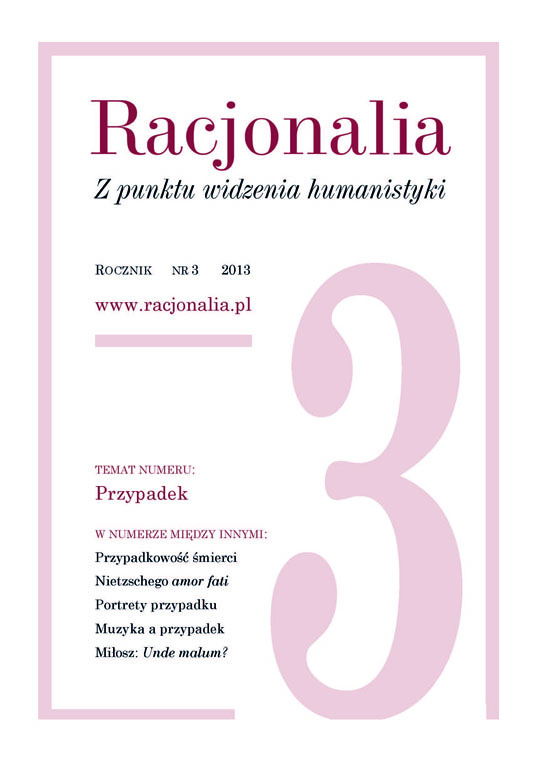Amor fati Fryderyka Nietzschego (konieczność i przypadkowość losu człowieka)
Friderick Nietzsche’s amor fati (necessity and fortuitousness of human’s destiny)
Author(s): Paweł PałasińskiSubject(s): Metaphysics, Existentialism
Published by: Wydawnictwo Naukowe Uniwersytetu Papieskiego Jana Pawła II w Krakowie
Keywords: amor fati; necessity; fortuitousness; Übermensch; Nietzsche F.;
Summary/Abstract: This article is about the concept of amor fati in the Friedrich Nietzsche’s philosophy. In philosophy of Beyond Good and Evil the author’s idea of amor fati combines reflections on fortuitousness and necessity in the context of human life. In this paper, the author attempts to show the significance of this idea by the interpretation of Nietzsche’s statements about the following concepts: fortuitousness and necessity. The other issue is Nietzsche’s writing about his own attitude to life and the world. The amor fati idea appear to be an existential challenge that Nietzsche confronts with people who want to see their life as meaningful. By Nietzsche fortuitousness as the essence of the world is subordinate to the human life requiring the purpose. The amor fati concept appears as one way of life in the world without purpose.
Journal: Racjonalia. Z punktu widzenia humanistyki
- Issue Year: 2013
- Issue No: 3
- Page Range: 35-56
- Page Count: 22
- Language: Polish

